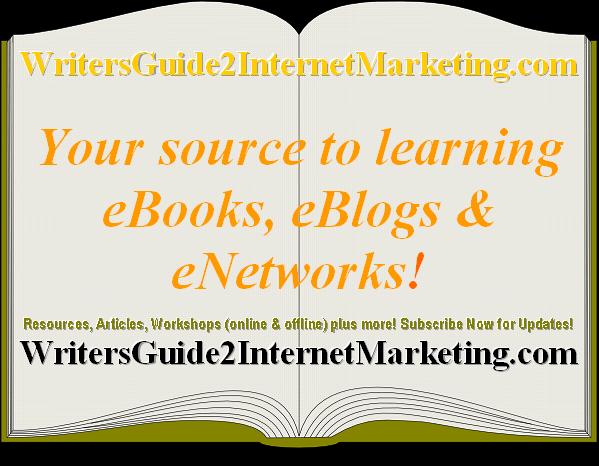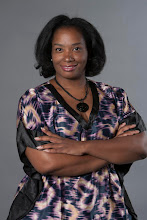|  December 14, 2011 December 14, 2011
In This Issue:
Buzzing Around Hi Sylvia,  I mentioned in the last issue that I was one of four women organizing a post-Thanksgiving craft show to raise $8,000 for a new classroom for Hannah's Hope, a school in Kenya. If we ended the day with a $4,000 profit, it would be a success by my standards. I guess I was naïve, because we actually generated $12,000! Wow! As a result, the organization that built Hannah's Hope has decided to add not one, but two classrooms! It was a pretty exciting day for everyone involved, but especially for Hannah's family. I mentioned in the last issue that I was one of four women organizing a post-Thanksgiving craft show to raise $8,000 for a new classroom for Hannah's Hope, a school in Kenya. If we ended the day with a $4,000 profit, it would be a success by my standards. I guess I was naïve, because we actually generated $12,000! Wow! As a result, the organization that built Hannah's Hope has decided to add not one, but two classrooms! It was a pretty exciting day for everyone involved, but especially for Hannah's family.
I had my own $4,000 goal for our "Have a Heart for Hannah's Hope Holiday Sale" because I'm big on goal-setting. It helps keep me focused on what's important. As someone once said, "Failing to plan is planning to fail." And then there's, "If you don't know where you're going, how will you know when you get there?" Please take time before the end of the year to establish professional and personal goals. I know from experience that having specific goals can make you more productive and satisfied. And who can't benefit from that? Cheers, Sandy
Expert View:
6 Things to Include in Your HARO Responses HARO - "Help a Reporter Out" - is a complimentary service that links journalists with sources. (There are now paid versions with extra benefits like "early alerts," too, but the original no charge version provides enough value for most of us.) It's a valuable resource for authors looking for that priceless news media exposure known as publicity. About a year and a half ago, this newsletter offered tips on how not to respond to a HARO query (the requests from journalists, sent collectively in e-mails distributed three times a day, are called "queries"). As a reminder from that issue, you don't want to respond to requests for sources on your area of expertise by writing: - "You should call me. I know a lot about this."
- "I saw your HARO ad. If you're ever looking for a source about (insert random topic unrelated to query here), call me."
- "Read the article at this link for my opinion about this. Feel free to use anything from my article in yours."
Here's what you do want to include in your response: - The title of the "query" you're responding to in your e-mail subject line. Every query has a title - for example, "Cheap, healthy holiday fare" or "How to keep employee morale up." Copying and pasting the query title into the subject line of your message helps the busy journalist organize and track responses.
- Your credentials. What makes you qualified to contribute to this article or segment? Why should the reporter interview you? In addition to summarizing your relevant expertise in one or two sentences, include a link to your bio on your website.
- One or two sentences to offer your perspective. Maybe it's your opinion, something counter-intuitive, or information that validates the article or segment premise. Try to offer a few thoughts that the journalist won't get from the many others who are responding. Be as specific as possible.
- Tips or advice when appropriate. If the journalist seeks an expert and there's enough information in the request to offer tips, use bullets to present three or four.
- Brief anecdote when requested. Sometimes, reporters are looking for anecdotes, not advice from experts. If you've got one to share, keep it brief and to the point.
- Contact information. This one is so obvious that it's often overlooked. Make sure you include your full signature with name, e-mail, telephone number, URL, and your book title.
Finally, don't include attachments. While HARO responders can attach files to their e-mail responses, HARO doesn't pass those attachments along to the journalist. (Odd, isn't it?) If it's important to include the information, copy and paste it into the message.
Education:
Register for February 2012 "Book Publicity 101: How to Build Book Buzz" E-course We're now accepting registrations for the "Book Publicity 101: How to Build Book Buzz" e-course that runs January 30 - February 24, 2012. Both sections - one for traditionally published authors and the other for those who have self published - emphasize the planning, strategy, tools and tactics needed to get - and keep - your book in the news so that you sell more books. (The course for self-published authors includes a section on how to announce a book's publication and generate reviews.) You'll leave the class with your own book publicity blueprint, tools you can use immediately to get media exposure, and a solid understanding of how to get attention in both traditional and social media worlds. The class is taught online in a forum format. There are no scheduled meetings or sessions - you work at your own pace according to your own schedule. For information on the original course, "Book Publicity 101: How to Build Book Buzz," go to http://buildbookbuzz.com/how-to-build-book-buzz-workshop/. For information and on the self-published authors course, "Book Publicity 101 for Self-Published Authors: How to Build Book Buzz," go to http://buildbookbuzz.com/self-published-how-to-build-book-buzz-workshop/. Purchase "How to Use LinkedIn to Sell More Books" Audio Program We're still getting great feedback on our LinkedIn for authors teleseminar! That's because LinkedIn is quickly becoming the virtual water cooler for people who want to learn about and read your books - whether you write nonfiction or fiction. As the second largest social network in the U.S. and the world's largest professional network on the Internet, LinkedIn offers you more than 120 million members in more than 200 countries. You can't afford to ignore this resource any longer! Its unique features can help you be even more targeted and effective with your book promotion efforts than you can be with either Twitter or Facebook. In this 75-minute recording and bonus two-page handout, LinkedIn expert Wayne Breitbarth, author of The Power Formula for LinkedIn Success, shares his LinkedIn book sales secrets for the first time with authors. Learn more and purchase the audio recording at http://buildbookbuzz.com/linkedin-audio-program/. It's a great value.
About Sandra Sandra Beckwith is a former publicist who has won several national and regional publicity awards and teaches authors how to generate long-term media buzz for their books. She is the author of three books on publicity, conducts publicity workshops, and writes frequently on small business marketing and management topics. Please visit her book publicity site and publicity blog to learn more. Build Book Buzz is a free e-newsletter published twice monthly by Beckwith Communications. Please forward this newsletter to anyone. To subscribe, visit www.buildbookbuzz.com. We do not share our mailing list with any individual or organization for any reason. Need a writer's conference speaker or workshop presenter? Sandra's workshops at the American Society of Journalists and Authors annual conference, the University of Wisconsin Writers Institute, and at other industry conferences share priceless how-to information you won't get elsewhere. Contact her at sb@buildbookbuzz.com for more information. Build Book Buzz
www.buildbookbuzz.com
Sandra Beckwith, Editor & Publisher
Phone: 585-377-2768
Email: sb@buildbookbuzz.com |













 ONLY $5!
ONLY $5!




No comments:
Post a Comment